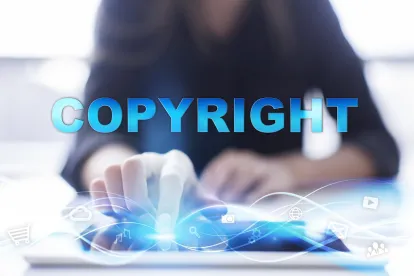Effective August 17, the US Copyright Office amended its regulations to establish a new “group registration” option for what it describes as “short online literary works.” This is very good news for social media influencers and other online bloggers. As a general rule, a copyright registration covers an individual work, and an author is required to prepare a separate application and submit a separate filing fee for each work he or she wants to register. The output of social media influencers and bloggers typically consists of frequent but short posts. Until now, both the administrative burden and cost of registering each post or blog has been prohibitive, so many influencers and bloggers simply did not register their works, and therefore were unable to protect them in the event of infringement.
To qualify for this new group registration option, each work must contain at least 50 but no more than 17,500 words. This means that a short tweet will not qualify for protection, even if it is as creative as, say, a haiku poem. Tweets are limited to 280 characters which, as a general rule of thumb, converts to about 55 words, depending on word length. For purposes of context, Elizabeth Barrett Browning’s famous sonnet, “How Do I Love Thee?”, comprises only 37 words and, therefore, would not have been eligible for group registration as a “short online literary work” had it been first published in a tweet. A tweet, therefore, would have to come close to this character limit in order to be eligible for the new group registration. (A piece of trivia to consider: according to several sources, the current average length of a tweet is between only 28 and 33 characters or five to seven words.)
The fact that each work must contain at least 50 words also means that there will not be copyright protection (nor should there be) for the kind of short Instagram or Facebook posts that typically accompany photographs and videos. Such posts will be disqualified from protection, even if they contain the requisite creative authorship, like “Sipping [insert branded beverage] at sunset in Cabo, imagining sailing ships from days gone by, with the rumble of eternal waves the only sound interrupting the peaceful evening.”
All of the works must be created by the same individual or jointly by the same individuals, and each creator must be named as the copyright claimant or claimants for each work. In other words, the author cannot submit an application in which another person or a company is listed as the copyright claimant. The works must all be published online within a three-calendar-month period. If these requirements are met, the applicant may submit up to 50 works with one application and pay a single filing fee. The US Copyright Office will examine each work to determine if it contains a sufficient amount of creative authorship, and if the office registers the claim, that registration will cover each work as a separate work of authorship.
One arguable downside for influencers and other bloggers to the group registration for short online literary works is that the registration will only cover “text.” Yet, many influencers and bloggers combine textual commentary with photographs, videos and even music. The US Copyright Office will accept “deposit copies” of the works to be registered, even if they contain text combined with another form of authorship, so at least an applicant won’t have to strip out his or her other content in order to register the text. However, the issued registration will only cover the text.
A blogger’s published photographs can be protected collectively by a separate group registration. One of the already-existing exceptions to the general rule requiring individual registrations for individual works covers photographs. One application (and one application fee) may be submitted for a group of published photographs that meets criteria similar to those now required for short online literary works. Among other things, all of the works in the group must be photographs, all of the photographs must be published in the same calendar year, the group must include no more than 750 photographs, the photographs must be created by the same author, and the copyright claimant for each photograph must be the same person or organization as the author. Unlike an application for short online literary works, however, the US Copyright Office will not accept an application that combines photographs with text or other forms of authorship.
Ultimately, in order for a social media influencer or other blogger to fully protect his or her multimedia posts — i.e., a combination of text, photographs, video and music — he or she has no option other than to submit separate applications for each post.
Although this new registration procedure primarily affects individual influencers and other bloggers, it could have a secondary impact on businesses that engage their services. Large retailers with popular brands may have the negotiating leverage to require influencers to grant all rights of copyright in their posts to the company.1 The company’s standard influencer agreement might provide that the results and proceeds of the influencer’s services (i.e., his or her social media posts) are considered a “work made for hire” under copyright law, meaning that the company/ employer is considered to be the author of the work for copyright purposes. But, the new process does not allow for registration of works made for hire.
Alternatively, the influencer agreement might provide (either on a standalone basis or in addition to work-for-hire language) that the influencer grants or assigns all of his or her rights of copyright in the “results and proceeds” of his or her services to the company. Under this circumstance, however, a retailer whose influencer agreement was made prior to the implementation of the new registration scheme could end up being assigned unregistered works. The retailer would then face the choice of spending time, effort and money to register such posts or forfeit the potential recovery of statutory damages and attorneys’ fees should it be required to commence litigation against infringers. (This is because the Copyright Act of 1976 makes registration a condition for commencing an infringement lawsuit and entitles a copyright plaintiff to seek recovery of statutory damages and attorneys’ fees only if the issuance of a registration precedes the alleged infringement.)
Accordingly, if a retailer’s influencer agreement contains work for hire language or an assignment provision that does not require the influencer to register his or her posts, a revision or amendment may be in order. There does not appear to be any prohibition against bloggers assigning their rights of copyright to another after receiving a registration. So a retailer might consider revising its influencer agreements to both require its influencers and bloggers to apply for registration of their posts and assign their rights in those posts following registration.
(1) See David Halberstadter, Best Practices for Social Media Influencer Contracts, Kattison Avenue. (Spring 2020), https://katten.com/files/795900_kattison_ newsletter_spring_2020.pdf




 />i
/>i

